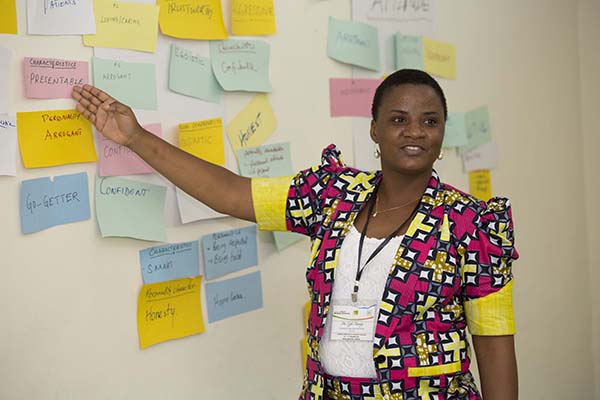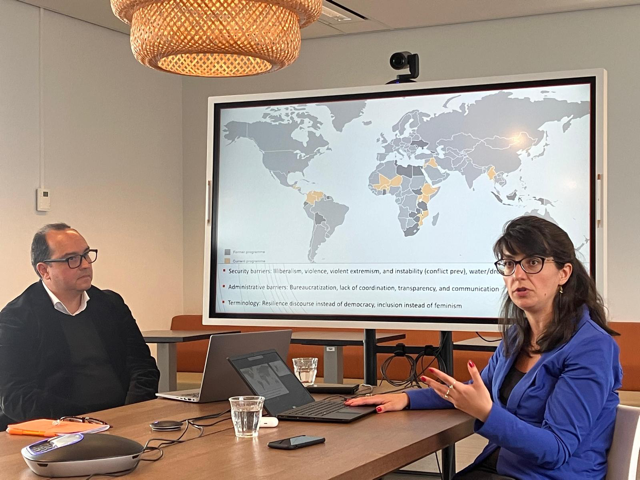New study shows democracy aid works: encouragement in challenging times

Sweden has recently conducted research into the effects of Swedish and international democracy aid. It shows that, both international and Swedish democracy aid have a small but positive effect on the advancement of democracy globally.
This is very encouraging for an organization like NIMD that works on democracy strengthening. Therefore, our Learning and Innovation Advisor, dr Arlinda Rrustemi, decided to meet with the researcher, Miguel Niño-Zarazúa, and delve into his ground-breaking research. It offers very valuable insight into the effectiveness of democracy aid.
Need for a tailor-made and targeted approach
The first thing that struck me, is that the study challenges the notion that one type of aid (bilateral or multilateral) is inherently more effective than the other. This finding calls for a nuanced approach. As a democracy support organization, we must tailor our support to the unique needs of the countries we work with, ensuring that our assistance is contextually relevant and impactful.
The study’s emphasis on targeting aid explicitly at the building blocks of democracy, such as civil society, free and fair elections, media freedom and human rights, is another crucial takeaway for NIMD and other democracy support organizations. It means that we should prioritize funding initiatives that strengthen these fundamental pillars of democracy even more.
Democracy aid in times of democratic decline
There are also challenges highlighted in the research. An important one is the influence of emerging authoritarian donors on democracy-strengthening efforts. Understanding the impact of non-democratic donors, such as China, Russia, Turkey, and the Arab States is essential. It prompts us to be vigilant and innovative in our approaches. NIMD innovates through continuous global knowledge creation, exchanges and adaptations.
Miguel Niño-Zarazúa and Arlinda Rrustemi presenting their research at NIMD HQ in the Hague

Furthermore, the study suggests that democracy aid works better in countries that want to consolidate their democratic systems, rather than authoritarian states. This is interesting. It means that both donors and NGOs need to reflect more – or differently – on where to implement programmes.
Elevating the impact of democracy aid
Miguel Niño-Zarazúa’s research reaffirms the importance of democracy aid. It is inspiring and shows that, as the democracy support sector, we can definitely contribute to a stronger, more resilient global democratic landscape and pave the way for positive change.
However, it is crucial to recognize that our path is not without obstacles. External and domestic challenges, geopolitics and knowledge gaps are common hurdles that we encounter in our efforts. As we move forward, we must incorporate strategic approaches, innovation and adaptation in our work. And think about effective communication strategies that will help us to convey the importance of democracy in a way that resonates with people. This will help us to create a lasting impact.
You can download the full report on the effects of Swedish and international democracy aid here.
